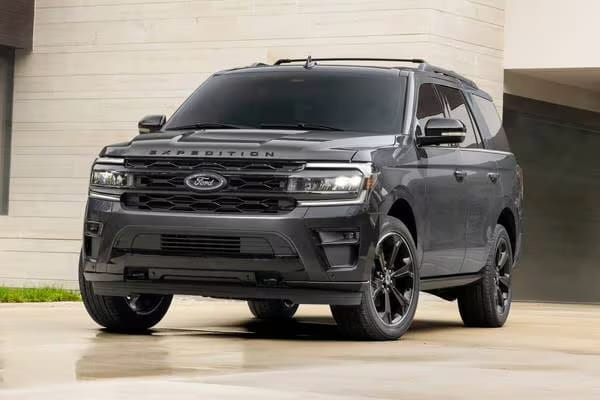The Hardest Sell In American Car Culture

Ford didn’t invent the car, but it might as well have. The Model T—cheap, simple, and small—brought the automobile to the masses. By the early 1920s, about half of the world’s cars were made by Ford.
But these days, Ford is only nominally in the car business. Of the 1.9 million vehicles that Ford sold in the U.S. last year, a mere 48,636 were listed as “cars.” (Ford sells just one in America, the Mustang.) The rest were SUVs and trucks, such as the ubiquitous F-150.It’s the same deal at the other “Big Three” automakers, General Motors and Stellantis (the vaguely pharmaceutical-sounding conglomerate that now owns Chrysler, Jeep, Ram, and Dodge). Although all once had lineups of sedans, station wagons, coupes, and hatchbacks, they now primarily focus on trucks and SUVs. Companies keep making bigger and bigger cars, and Americans keep buying them. Visit another country and you’ll quickly realize how exceptionally chunky the vehicles are stateside: By one measure, cars in the U.S. are 20 percent heavier than those in Europe.
And yet in June, Ford’s CEO, Jim Farley, said something almost heretical coming from an American auto executive: “We are just in love with these monster vehicles, and I love them too, but it’s a major issue with weight.” Americans, he added, need to “get back in love” with smaller cars. This can feel a bit like hearing the CEO of Anheuser-Busch say, You know, Americans are just drinking way too much beer. Farley’s primary concern with weight is not pedestrian safety (though that is a problem) but electric-vehicle batteries.
Bigger electric cars require heftier batteries—and because batteries represent the most expensive part of any EV, those come with a higher price tag. Asking customers to foot the bill hasn’t worked out. Yesterday, Ford punted on its EV strategy, canceling a large, three-row SUV. “We could not put together a vehicle that [would] be profitable in the first 12 months,” the Ford executive John Lawler said on a conference call.Ford is making a similar calculus as many other car companies: With EVs, smaller may be better. But that strategy only pay off if people actually buy these cars. Persuading drivers to go electric has already proved to be a tough ask. Persuading them to go smaller may be even tougher.

